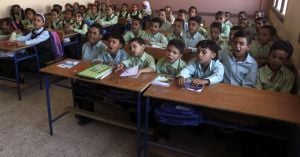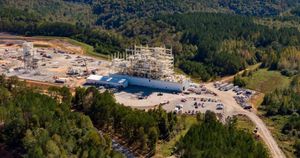Alejandro, the daughter of Spanish bullfighter Martín Pareja-Obregón, has come forward with serious accusations against her father, whom she describes as ‘a scoundrel’ following his estrangement from her and his condemnation for family abandonment. At just 19 years old, Alejandra has exemplified the struggle of many young adults grappling with parental neglect and the desire for acknowledgment from estranged parents.
Born from a brief romance between Pareja-Obregón and Judith Rey, Alejandra was recognized legally as her father's daughter back in 2009. But learning of her father's identity came as a shock. “I was around 12 when I found out he was my father,” she recounted, indicating she felt blindsided by the realities of her family's history. She remembers the moment vividly, describing it as involving significant family turmoil: “That day led to quite the argument at home because this topic had always been taboo for us.”
Last year, weeks after she turned 18, Alejandra made her first attempt to reach out to her father, sending him a heartfelt message expressing her desire to connect. “I wrote, 'Hello. I’m Alejandra. Tomorrow is my birthday. I would love to meet you and have a conversation. I bear no hatred or resentment, I just wish to know you,'” she explained. The response from her father was initially optimistic, as he replied with birthday wishes and promised to talk, saying, “If God wills, we will talk soon.” Yet, hope diminished as no follow-up came, leaving Alejandra feeling abandoned again. “He gave me hope, and then it all just faded away,” she lamented, highlighting the emotional trauma of being repeatedly let down by her father.
Adding to her frustration, Alejandra noted her father’s history of failing to provide child support, stating he had only ever contributed sporadic payments since 2018. After the latest ruling from the court where he was condemned for his neglect, he is now ordered to pay significant arrears, amounting upwards of €30,000, which includes back payments and educational expenses. Should he fail to comply, it could lead to potential jail time.
Throughout her life, Alejandra has had to navigate financial hardships, primarily supported by her hardworking mother, Judith, who has faced her struggles, including persistent threats and the stigma of being single and raising Alejandra alone. “I’ve never lived through bitterness; I was mostly unaware of my circumstances. It wasn't easy, of course, but my mother worked incredibly hard and had to figure things out on her own,” she reflected. Despite the challenges, Alejandra has remained resilient. Currently enrolled in her second year of high school, she dreams of studying veterinary medicine and works as a waitress to cover her expenses.
Reflecting on her relationship with her father, Alejandra's emotions are complex. She revealed to the press: “If I had been able to have met him, perhaps I could have forgiven him, but not now. I have many things stored up inside me, things I’ll eventually share.” Her decisiveness highlights the depth of her hurt and the yearning for accountability from Martín Pareja-Obregón.
Alejandro has also aired her grievances about the intimidating environment surrounding her mother, explaining how they have received anonymous threats discouraging her from speaking. “My mother still gets calls from blocked numbers urging her not to expose the truth,” she stated, positioning her narrative as not just about personal reconciliation but also as defense for her mother who has faced unwarranted scrutiny.
At the core of Alejandra's revelations, there exists an urgent plea for recognition. She asserts: “I want everyone to know I’m here because I have endured this long enough without being recognized.” Her words resonate as she desires not only to reclaim her identity but to shine light on her father's negligence.
This public vindication posed by Alejandra marks another chapter of resolution as victims of familial neglect often strive for acknowledgment. She has stepped away from the shadows cast by her father's absence, boldly declaring, “He has lost the chance to get to know me, and I am proud of the person I have become without him.” This sentiment echoes the broader theme of strength found within individuals who have endured the trials of parental abandonment.
Alejandro’s story is illustrative of countless stories where children are left to navigate their lives amid the void created by absent parents. It reinforces the importance of accountability and the acknowledgment of responsibilities, particularly among those empowered by their experiences to create change.



